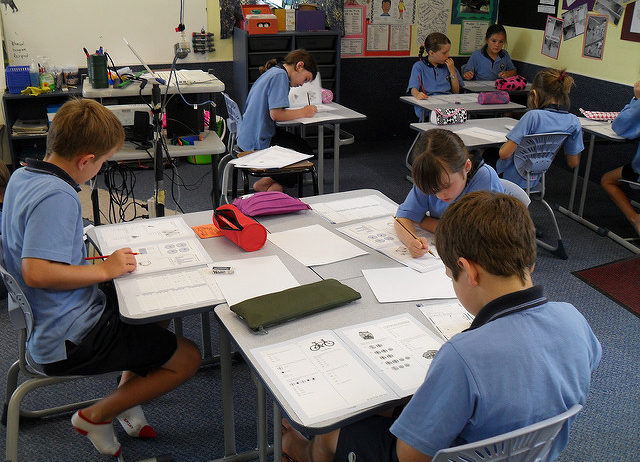Difficulty completing schoolwork is generally the first symptom of slow processing speed in children. When kids with slow processing speed begin to notice that they are not keeping up with their peers, they may feel inadequate or “stupid.” Patients in my office often report a diminished sense of self-esteem as a result of the slow processing, even when the evidence is clear that they are learning and may be extremely knowledgeable. In today’s fast paced world, sometimes going fast is valued more than doing a good job!
It is important to clear this misconception with your kids or students. There are many helpful strategies to improve processing speed for school and academics. Here are some of our favorites:
Use repeated practice to enhance reading or writing speed. Things that have been thoroughly memorized are simply retrieved, rather than processed. This holds true for sight-word reading, multiplication facts, writing letters, and computing equations. Use drills and flash cards to help with memory and retrieval of information.
Give time limits to complete tasks and then gradually reduce the time limits to teach your child to become more adept at working quickly. Keep track of how long the task takes to complete. Use devices such as an egg timer or other visuals to help your child understand how much time he has to complete a task. Give the child warning(s) when they are reaching the time limit. Help them set competitive goals to improve their efficiency.
Utilize scanning or reviewing before completing a task. For example, scanning the next paragraph before reading it will give the reader an indication of what that paragraph is about. Also, scanning to figure out the most important parts of homework and determining what to do first might help in completing assignments more efficiently. Scanning to identify the most important parts can be useful for any activity, not just school work.
Use fingers or pointers for guiding eye movement while reading. Research indicates that using a finger can help children to read more quickly.
Play Rayman Raving Rabbids or another similar fast paced action game. Research conducted by Simone Gori, Andrea Facoetti, and Sandro Franceshini suggests that action games that require rapid processing of information can quickly improve reading fluency, one of the components of processing speed.
Does your child have slow processing speed? Take the questionnaire.
Learn more about parenting a child with slow processing speed, strategies for improving performance in the classroom, rules for dealing with slow processing speed at home, and the social and emotional toll slow processing speed has on children. Then check out video games that help improve processing speed.
Featured image: Flickr user Jo Fothergill




